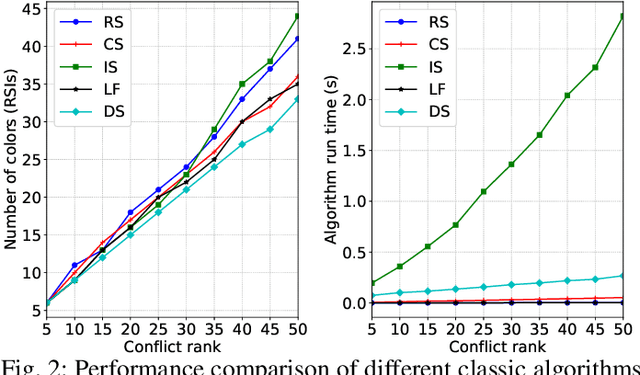Furqan Ahmed
A canonical correlation-based framework for performance analysis of radio access networks
Sep 29, 2022



Abstract:Data driven optimization and machine learning based performance diagnostics of radio access networks entails significant challenges arising not only from the nature of underlying data sources but also due to complex spatio-temporal relationships and interdependencies between cells due to user mobility and varying traffic patterns. We discuss how to study these configuration and performance management data sets and identify relationships between cells in terms of key performance indicators using multivariate analysis. To this end, we leverage a novel framework based on canonical correlation analysis (CCA), which is a highly effective method for not only dimensionality reduction but also for analyzing relationships across different sets of multivariate data. As a case study, we discuss energy saving use-case based on cell shutdown in commercial cellular networks, where we apply CCA to analyze the impact of capacity cell shutdown on the KPIs of coverage cell in the same sector. Data from LTE Network is used to analyzed example case. We conclude that CCA is a viable approach for identifying key relationships not only between network planning and configuration data, but also dynamic performance data, paving the way for endeavors such as dimensionality reduction, performance analysis, and root cause analysis for performance diagnostics.
Quantum Computing for Artificial Intelligence Based Mobile Network Optimization
Jun 26, 2021


Abstract:In this paper, we discuss how certain radio access network optimization problems can be modelled using the concept of constraint satisfaction problems in artificial intelligence, and solved at scale using a quantum computer. As a case study, we discuss root sequence index (RSI) assignment problem - an important LTE/NR physical random access channel configuration related automation use-case. We formulate RSI assignment as quadratic unconstrained binary optimization (QUBO) problem constructed using data ingested from a commercial mobile network, and solve it using a cloud-based commercially available quantum computing platform. Results show that quantum annealing solver can successfully assign conflict-free RSIs. Comparison with well-known heuristics reveals that some classic algorithms are even more effective in terms of solution quality and computation time. The non-quantum advantage is due to the fact that current implementation is a semi-quantum proof-of-concept algorithm. Also, the results depend on the type of quantum computer used. Nevertheless, the proposed framework is highly flexible and holds tremendous potential for harnessing the power of quantum computing in mobile network automation.
 Add to Chrome
Add to Chrome Add to Firefox
Add to Firefox Add to Edge
Add to Edge